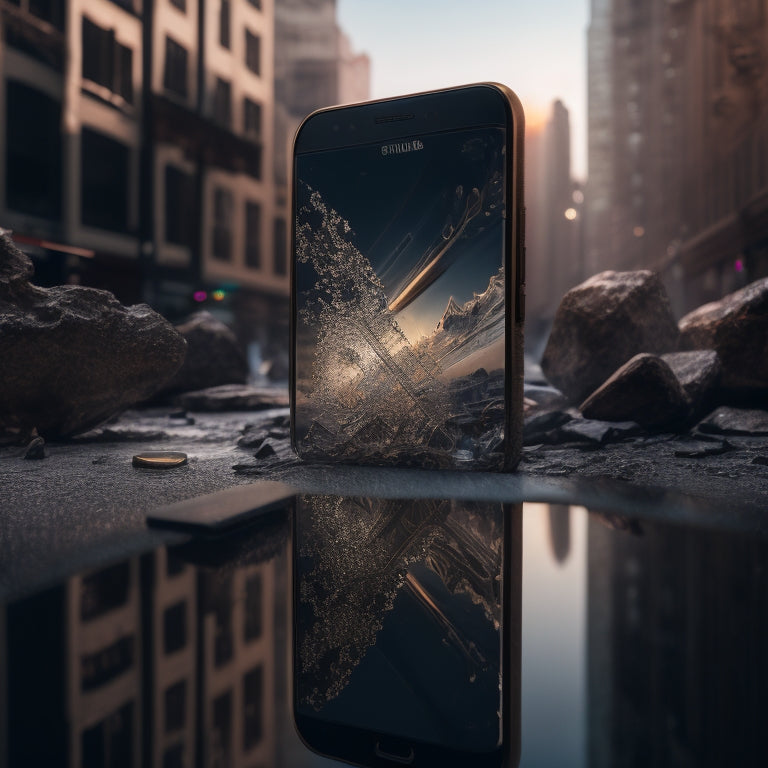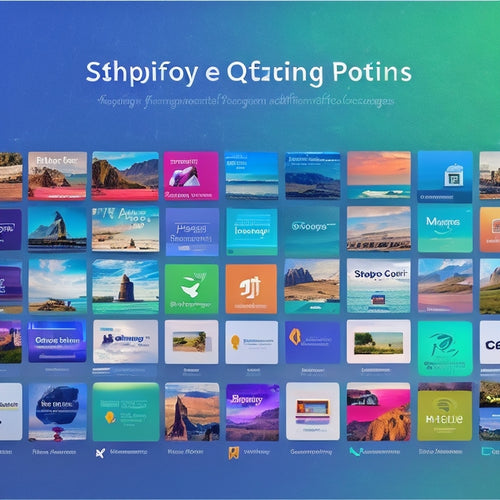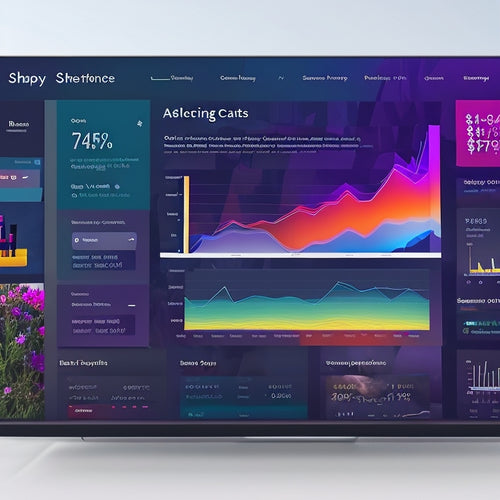
Luxury Brands Face Digital Dilemma
Share
Luxury brands are faced with a digital dilemma, reconciling their exclusive appeal with the imperative of establishing a strong online presence. In today's digitally driven retail landscape, affluent shoppers rely heavily on technology, making a significant online presence essential. However, luxury brands must balance digital visibility with exclusivity concerns, fearing a loss of human touch. A delicate equilibrium is crucial, and embracing e-commerce integration, social media engagement, and an omni-channel approach can drive sales and increase brand visibility. By maneuvering through these challenges, luxury brands can unleash the full potential of digital marketing and maintain their allure in the process.
Key Takeaways
• Luxury brands must balance exclusivity with digital visibility to attract high-end customers in a digitally driven retail landscape.
• Establishing a robust digital presence helps drive sales and maintain relevance, but may dilute the brand's exclusive image.
• Concerns about losing the human touch in digital interactions and quantifying ROI in digital initiatives hinder luxury brands' digital adoption.
• Omni-channel approach and e-commerce integration are crucial for seamless online and offline experiences, but require significant investment and strategy.
• A well-executed digital strategy can drive sales, increase brand visibility, and solidify market position, but luxury brands must navigate the digital dilemma carefully.
Digital Imperatives for Luxury
In today's digitally driven retail landscape, where affluent shoppers increasingly rely on technology to discover, engage with, and purchase luxury goods, a strong digital presence has become an imperative for luxury brands seeking to maintain visibility, relevance, and ultimately, sales.
A significant online presence is essential for luxury brands to remain competitive, as affluent shoppers are increasingly tech-savvy. Digital visibility is vital to attract and retain high-end customers, who expect seamless online experiences.
Luxury brands must balance exclusivity with digital visibility, ensuring their brand allure is maintained while engaging with customers online. By establishing a robust digital presence, luxury brands can increase brand awareness, drive sales, and stay relevant in a rapidly evolving market.
Challenges in Embracing Digital
Luxury brands face a unique set of challenges when embracing digital. They must reconcile the need for online visibility with the imperative to preserve their exclusive appeal. This delicate balance is vital, as luxury brands risk losing their allure if they appear too accessible or common.
Exclusivity concerns:
Luxury brands fear that digital platforms will dilute their exclusive image, making them less desirable to high-end consumers.
Brand allure:
Maintaining a strong brand image is essential, but digital channels can make it difficult to convey the exclusivity and prestige associated with luxury brands.
Fear of losing human touch:
Luxury brands rely heavily on personalized service, which can be lost in digital interactions.
Difficulty in measuring ROI:
Luxury brands struggle to quantify the return on investment in digital initiatives, making it challenging to allocate resources effectively.
Strategies for Digital Success
Their digital playbook must prioritize an omni-channel approach, seamlessly integrating online and offline experiences to maintain exclusivity while fostering a strong online presence.
Luxury brands can achieve digital success by embracing e-commerce integration, allowing customers to smoothly shift between online and offline channels.
Social media engagement is also vital, enabling brands to build relationships with customers, share exclusive content, and create buzz around new products.
By leveraging these strategies, luxury brands can maintain their allure while expanding their digital footprint.
Ultimately, a well-executed digital strategy can drive sales, increase brand visibility, and solidify a luxury brand's position in the market.
Frequently Asked Questions
How Do Luxury Brands Measure the ROI of Their Digital Marketing Efforts?
To measure ROI of digital marketing efforts, luxury brands leverage data analytics to track campaign performance, monitoring metrics such as engagement, conversions, and sales, while implementing cost tracking systems to optimize budget allocation and maximize returns.
Can Luxury Brands Maintain Exclusivity Through Invitation-Only Digital Experiences?
Like a master key revealing a secret garden, luxury brands can maintain exclusivity through invitation-only digital experiences, such as Virtual Velvet and Private Portals, offering bespoke interactions that preserve allure while fostering intimacy with discerning clients.
What Role Does Influencer Marketing Play in Luxury Brand Digital Strategies?
Influencer marketing plays an essential role in luxury brand digital strategies, but brands must mitigate influencer fatigue by ensuring content authenticity, partnering with niche influencers, and creating bespoke experiences that resonate with their target audience.
How Do Luxury Brands Handle Digital Crises and Negative Online Reviews?
When a digital storm brews, luxury brands must navigate treacherous waters with crisis protocols in place, adhering to social etiquette guidelines to mitigate damage, and swiftly addressing negative online reviews with transparency and empathy to salvage their reputation.
Are There Any Luxury Brands That Have Successfully Transitioned From Offline to Online-First?
Some luxury brands have successfully shifted from offline to online-first by embedding digital DNA into their brand revamp, such as Burberry and Gucci, which have seamlessly integrated e-commerce and social media into their luxury experiences.
Related Posts
-
Best Sitemap Builder Shopify Apps for Your Business
This article examines the best sitemap builder Shopify apps available for businesses. It presents an objective analy...
-

Optimizing Shopify App Marketing: Strategies for Success
This article focuses on the optimization of Shopify app marketing strategies for achieving success. It provides insi...
-

Top Shopify SEO Apps for Boosting Website Performance
This article aims to examine the importance of utilizing Shopify SEO apps in order to enhance website performance. S...

